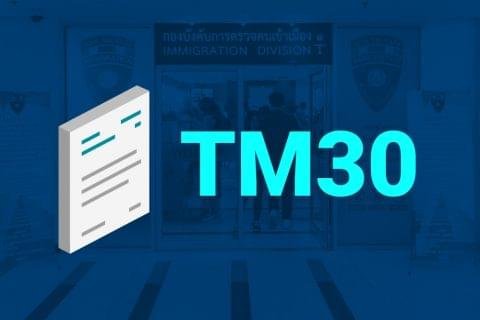The single biggest concern of any landlord in Bangkok is the possibility of coming across a bad tenant who doesn’t pay the rent!
While not common, late rental payments by absent-minded tenants or full-scale rental defaults leading to evictions do happen from time-to-time. Landlords are often caught unprepared by these unwanted events, leading to an uncomfortable situation of conflict and anxiety.
Therefore, this guide will aim to offer practical advice for property owners to navigate out of a toxic tenancy, while mitigating costs and potential damages.
The three areas that will be explored in detail:
1. Pre-Tenancy and Avoiding Potential Issues
2. Dealing with Late Rental Payments
3. Difficult Tenants and Evictions
*Landlords can skip, to the section most relevant to their current situation.
Legal Disclaimer and the Importance of Being Practical
A quick legal disclaimer, Fresh’s Editorial is not a Law Firm and this article will not be a legal review of tenancy laws in Thailand. Instead, it will aim to offer straightforward suggestions and practical steps to find resolution in case of conflict.
Going down the “legal route” in Thailand, is expensive and the outcome in the court is often uncertain. Therefore compromise and negotiation are a faster and more practical course of action for both the property owner and renter.

1. Pre-Tenancy and Avoiding Potential Issues
Preparing pre-tenancy and protecting yourself beforehand, is really the best way to avoid issues happening during the rental period.
– Tenant Screening
Recheck and ensure you are satisfied with the background of the potential tenant (I.e. Occupation, age and general profile).
– Prepare Rental Property and be Welcoming
Ideally moving-in should be a smooth and peaceful process for your future tenant. Therefore, ensure your rental property does not have underlying issues, such as faulty electrical appliances, broken fittings or dirty interiors.
Tenants should be able to settle-in and feel at home immediately; similar to moving into a fresh hotel room.
A little touch that may help, is being present on the signing/ move-in date to welcome your tenant face-to-face. This personal gesture often encourages a more harmonious landlord-tenant relationship.
– Standard Lease Agreement and Detailed Inventory
A simple step, to avoid future conflict usually involves clarifying responsibilities of each party and putting these acknowledgements in writing via a Lease Agreement and Inventory.
A good Lease Agreement should remain balanced providing protection to both the landlord and tenant. It is always important to ensure the contract used, specifies rental payment dates, grace periods and penalties in case of rental default.
A detailed Inventory of furniture, fixtures, fittings and electrical appliances needs to be drafted and supported by updated photos of items. This will usually offer added protection, in case of conflict and damages to the property by a difficult renter.
2. Dealing with Late Rental Payments
As touched upon briefly above, Lease Agreements tend to provide the framework that helps deal with late rentals.
Here are some extracts of some useful “clauses and conditions”, in our standard rental contract:
– A grace period (Usually a standard 5-days)
“6. The rent shall be paid in advance within the 1st of every calendar month and no later than the 5th of each calendar month”
– Penalty for late payment over-and-above the 5-days grace period
“7. Rent received after the date specified in clause 6. will be subject to a late penalty fee of 500 baht per day. Penalty fee is charged per late day to the payment date.
Example: If rent was due on the 1st and paid on the 6th the tenant will be assumed a 500-baht penalty fee;”
– Failing to pay rent above 15-days penalty
“If rent is not paid within 15 days of the original due date, the Tenant is in breach of the agreement and must leave the Premises and forfeit the deposit. The Tenant shall allow the Landlord to take over the leased condominium unit, even if it is locked or the entrance and exit are obstructed.”
By putting in place these formal rules, the tenant is aware of the conditions of their lease before and are less-likely to be late on rental payments.
However, Late Rental Payments can happen from time-to-time and as a Landlord it is always important to remain understanding and “human”. Personal emergencies, holidays or just an overload of work are some of the many reasons an absent-minded tenant can miss their rent.
Very often, late payment can be solved by gently reminding the tenant that their monthly rent is overdue!
3. Difficult Tenants and Evictions
Most standard rental contracts will offer a 5-days grace period, for example if rent is due on the 1st a renter would have up to the 5th day of the month to settle his rent. This arrangement usually provides ample time for the tenant to prepare payment.
However, it is important to carefully monitor the situation; the security deposit protecting the landlord is usually 1-or-2 Months of rent, leaving only a small margin for error. Over-and-above the 5-days, a “reminder” in writing (Preferably via email) should be sent out.
Efforts to try and reach out via messaging app or calls to the tenant requesting updates on the situation needs to be made.
If after the 10th day there is still no movement, another formal reminder needs to be served in writing, this time via email and post (Formal letter to rental property). This reminder should include a warning that the lease will be terminated if the tenant fails to pay the rent immediately. It is good practice, to update Building Management and to request their assistance to deliver the physical letter to the letter box of the tenant.
On the 12/13th day of non-payment, the landlord will have to move fast and make last attempts to try and contact the tenant requesting immediate payment. This time reminders should be harsher while remaining courteous, giving a fixed deadline before confirming termination of the lease.
Finally on the 14th/15th day, an ultimatum should be brought forward warning that water will be cut-off and access to building removed.
Some quick tips:
– Water supply can usually be stopped by the Building’s Management upon request.
– Remove access and cut utilities as a last resort, usually it is best to use the threat as a deterrent to further escalation.
It is important for the landlord to ensure there is proof that efforts were made to contact the tenant and seek resolution, throughout the eviction process.
Staying Flexible while Staying Firm
The last stage of eviction can be a stressful situation for all parties involved. Despite being wronged, landlords should always aim to remain respectful and courteous.
Ensuring they keep a balanced mindset, both ready to compromise while remaining firm on termination of the lease if situation continues. It is always more useful to maintain a conciliatory tone, offering to allow the tenant move-on without penalty (Providing the property and its interiors are in good condition).
Compromise is always the key to mitigating damages and allowing all parties to get on with their lives!
*Legal Disclaimer: As mentioned above, Fresh Property is not a Law Firm and if you are a Landlord or Tenant facing the late payment or eviction process, it is best to consult with a professional legal expert.





MR J STACHIN says:
HI great website and very helpful. Do you have a standard Eviction Notice in Thai? Greatly appreciate if you have and could kindly send to s—[email protected].
Thanks
Pelayo Clovis says:
Hello. My landlord has taken over my lodgings in Chachoengsao during my absence, less than seven days after the rent was due on the first of this month, after arguing with him about charging me over four times the official water rate and 50% more on electric. I had told him that I would leave when getting my deposit back minus the corresponding deductions about the aforesaid. He hasn’t sent me any eviction notice of any kind, I still hold the keys to my rental property which lacks an agreement or contract. I believe he has acted unlawfully and recklessly. Thanks